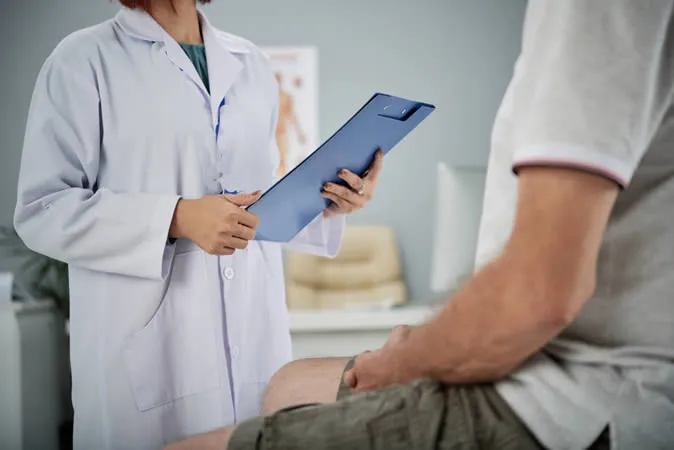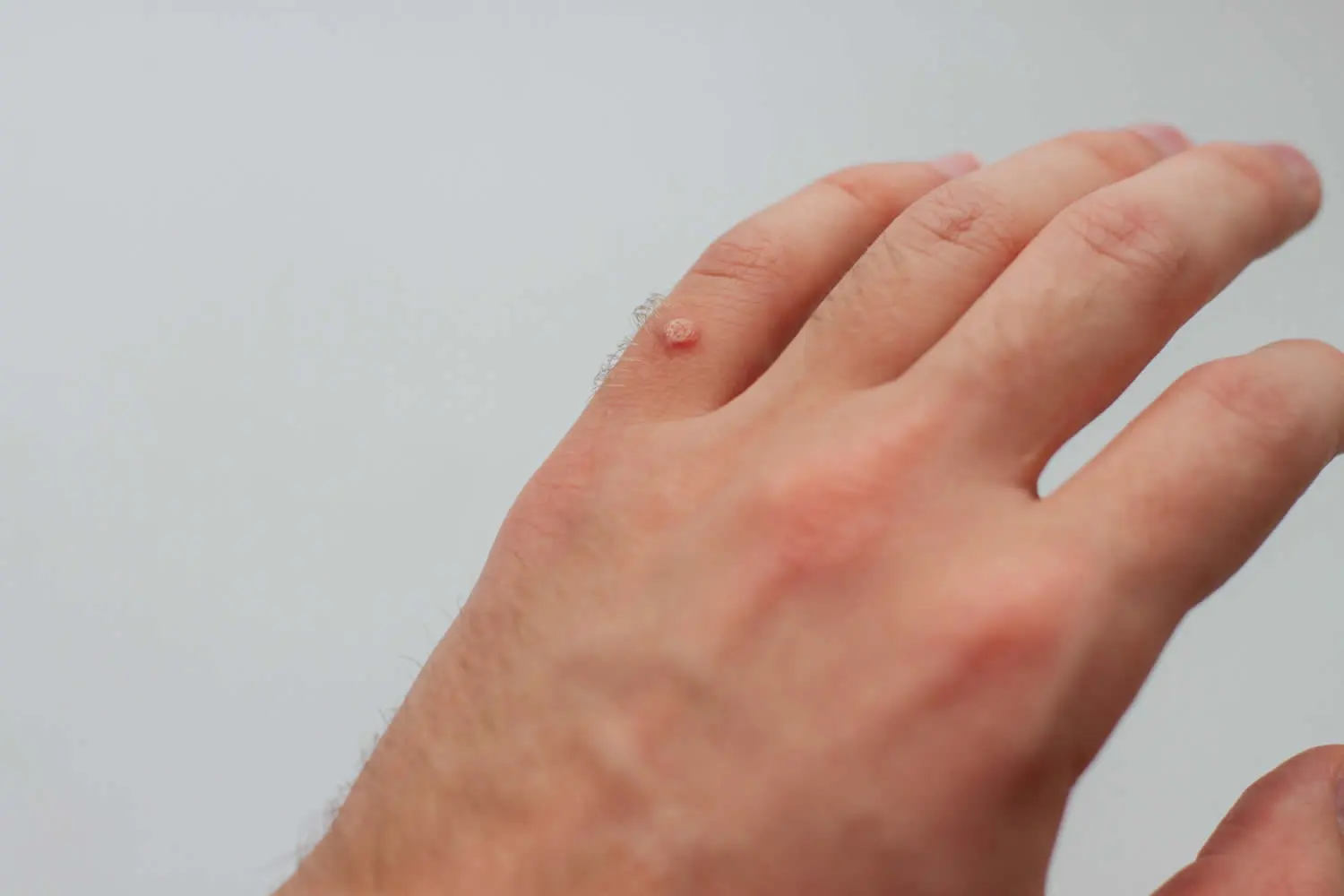What are Warts?
Warts are small, rough growths on the skin that are caused by human papillomavirus (HPV) infections. They can appear anywhere on the body and can have a flat or raised appearance. Warts are generally benign and are usually not a serious health concern, but they can be unsightly or painful in some cases. There are various treatments for warts, including over-the-counter creams, freezing therapy, and prescription medications. It’s important to consult a doctor for the best treatment options for your individual case.

What are the causes of Warts?
Warts are caused by infections with human papillomavirus (HPV), which are highly contagious. They are usually spread through direct contact with the skin of an infected person, or by coming into contact with a surface that has been contaminated with the virus. People with weakened immune systems, such as those with HIV/AIDS, are more susceptible to developing warts. Additionally, factors like skin injuries, cuts, and scrapes can increase the likelihood of developing warts, as they can provide an entry point for the virus.
What are the symptoms of Warts?
Warts typically appear as raised, flesh-colored growths on the skin that can be smooth or rough in texture. They can be flat or raised, and sometimes they have tiny black dots on the surface, which are small blood vessels. Warts can appear anywhere on the body and may be itchy, painful, or bleed. The symptoms and appearance of warts can vary depending on the type of HPV that caused the infection and the location of the wart. Common wart types include plantar warts (on the feet), flat warts (on the face), and genital warts. It’s important to have any unusual growths on the skin evaluated by a doctor to determine if they are warts or a different condition.
What treatments are available for Warts?
There are several treatment options available for warts, including:
- Over-the-counter topical treatments: These include creams and gels that contain salicylic acid, which can be applied directly to the wart.
- Cryotherapy: This involves freezing the wart with liquid nitrogen, causing it to blister and eventually fall off.
- Surgical removal: This involves cutting or burning off the wart, which can be performed by a dermatologist or doctor.
- Cantharidin: This is a chemical that is applied to the wart to cause a blister, after which the wart can be removed.
- Electrosurgery: This involves using an electrical current to burn off the wart.
- Laser therapy: This involves using a laser to destroy the wart.
How to Help Prevent Warts
Here are some steps you can take to help prevent warts:
- Wash your hands frequently: This will help reduce the spread of the human papillomavirus (HPV) which is the virus that causes warts.
- Keep your skin clean and dry: Warts thrive in moist environments, so keeping your skin clean and dry can help prevent the growth of warts.
- Don’t bite your nails: Biting your nails can cause tiny cuts in your skin, which can provide an entry point for the virus that causes warts.
- Avoid sharing personal items: Don’t share towels, razors, or other personal items with others, as these items may be contaminated with the virus.
- Wear protective footwear: Wear protective footwear, such as sandals or flip flops, in public areas such as locker rooms or swimming pools, where you may come into contact with the virus.
- Avoid touching warts: If you see a wart on someone else, avoid touching it, as the virus can be transmitted from person to person.
It’s important to keep in mind that warts can be easily spread, so it’s important to take precautions to help prevent their spread. If you already have warts, it’s important to avoid touching them, as this can spread the virus to other parts of your body or to others.

FAQ About Warts
Can warts be spread from person to person?
Yes, warts can be spread from person to person through direct contact or through contact with contaminated items such as towels or razors.
Can warts be painful?
Warts are typically not painful, but they may become uncomfortable or irritated if they are located in an area that rubs against clothing or footwear.
Can warts go away on their own?
Warts can sometimes go away on their own, but it can take several months to several years for this to happen.
Are warts contagious?
Yes, warts are contagious and can be spread from person to person through direct contact or through contaminated items.
Can warts reoccur?
Yes, warts can reoccur after they have been treated, especially if the person’s immune system is weakened.
Is there a dermatologist near me in Salt Lake City that offers treatment for warts?
Yes. At our Salt Lake City dermatology office we offer treatment for warts to patients from Salt Lake City and the surrounding area. Contact our office today to schedule an appointment.

